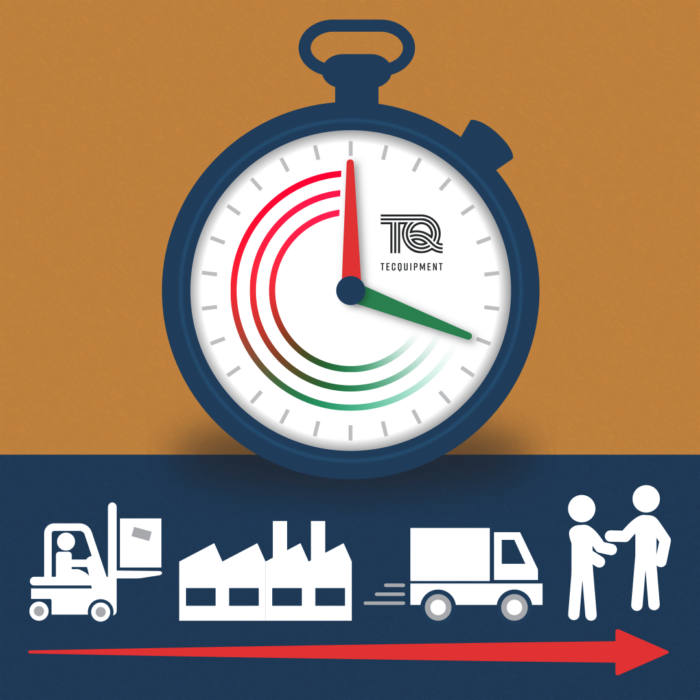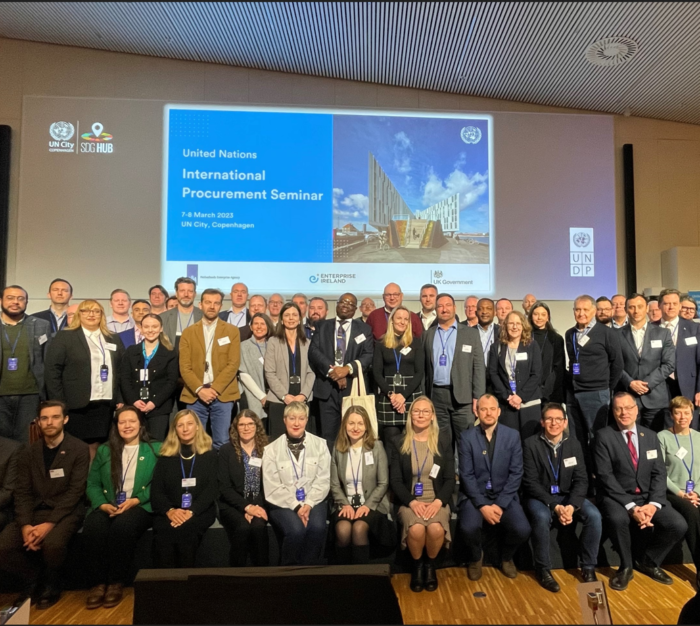Why was reducing lead-times important for us?
A lead-time is how long a customer waits to receive the products they order. Due to the variety and sometimes complex nature of the products we offer, this lead-time varies based on the product. For example, the Engineering Science range products are all available from stock, meaning a lead times of just a few days. Larger or infrequently purchased products such as our electrical power systems products have longer lead times due to bespoke parts requiring manufacturing. This can result in it taking a few months for the parts to be manufactured and for the product to be completed, tested, and delivered to customers.
But offering bespoke products shouldn’t mean that customers must wait longer than shelf ready products. We want to provide our customers with the best practical teaching engineering products available and provide them in a timely manner, enabling their students to reap the benefits of hands-on learning faster.
We faced many challenges that contributed to extended lead times during recent years. Factors such as supply chain disruptions, supplier bankruptcies, internal workflow issues, vacancies, and component obsolescence all contributed to delays in fulfilling orders.
We understand that waiting for products can be frustrating, especially in educational settings where timing is crucial. Reducing lead-times was therefore crucial for us as we remained committed to meeting customers' expectations of TecQuipment and ensuring the timely delivery of high-quality products.
So, by focusing on methods to improve lead-times we have recovered from having lead-times on many products of 26 weeks to 8 weeks on a majority of our popular product ranges.
How did we do this?
To tackle the various challenges affecting lead-times, we implemented several strategic initiatives:
- Supply Chain Optimisation: We addressed supply chain issues such as previously reliable suppliers becoming unreliable, parts provided at substandard quality levels, unworkable supplier lead-times and fewer suppliers in the market by improving internal workflows, producing more parts in-house, strengthening relationships with reliable suppliers, and onboarding new partners who meet our quality standards.
- Process Improvements: We introduced transparent data dashboards and visual factory methodologies to streamline operations and optimise production processes. This included proactive engineering support to mitigate component obsolescence issues, and planning adjustments to change the factories dynamics, removing capacity constraints based on new capabilities. Part of this planning focused on the use of large amounts of historic manufacturing data captured over many years. This enabled us to, for example, implement an algorithm to drive minimum order quantities which meaningfully reduced setup time on machines. We are also currently investigating wireless communication hardware for machinery so we can plan and monitor more accurately, a further step towards industry 4.0.
- Talent Recognition and Development: To reduce supply chain issues and maintain quality standards we recognised the importance of skilled personnel, we introduced a committed Production Manager who is focused on staff welfare and factory working capacities and a knowledgeable Procurement Manager, familiar with our products and suppliers. Whilst there are ongoing UK recruitment issues beyond TecQuipment’s control. To mitigate this in the long term we are increasing our apprenticeship intake to give more willing young engineers the chance to thrive in a high demand industry and contribute to increasing manufacturing capacities.
What impact does this have on staff and customers?
The impact of reducing lead-times extends beyond the achieved operational efficiency. It boosts staff morale, fosters a happier and more focused workforce, and strengthens customer relationships.
Most importantly, customers often have set budgets and time frames that have to be met. Even if we were the supplier of choice, our previous extended lead times sometimes meant those customers had to take their business to other providers who could provide equipment within a short lead-time, or simply allocate their funding to lower priority projects.
Now that we can again supply our known, quality assured teaching equipment with industry leading lead-times on a majority of our products, and by meeting delivery deadlines consistently to ensure our customers receive the products they need when they need them, we can re-build the trust they have in us.
Conclusion
As we continue to refine our processes and enhance our capabilities, our commitment to delivering high-quality products remains unwavering. We understand the importance of maintaining our quality standards while striving for efficiency and timeliness. Our promise to you is simple: high-quality engineering teaching equipment delivered to your facilities within acceptable timeframes.




